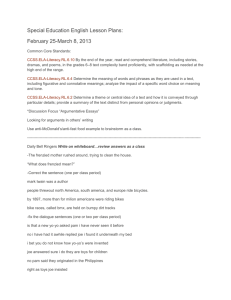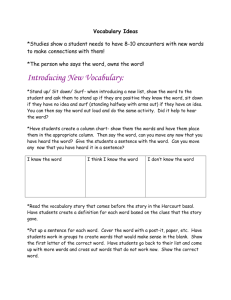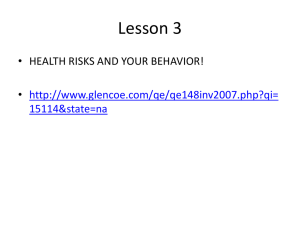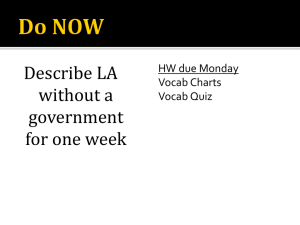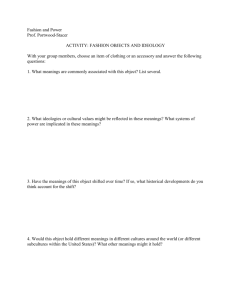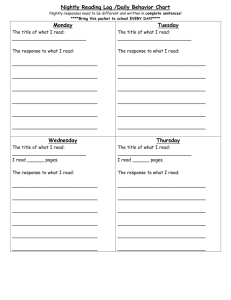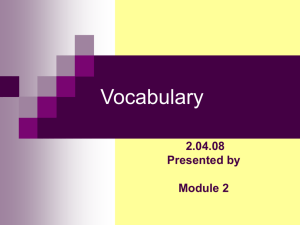Management Definition
advertisement
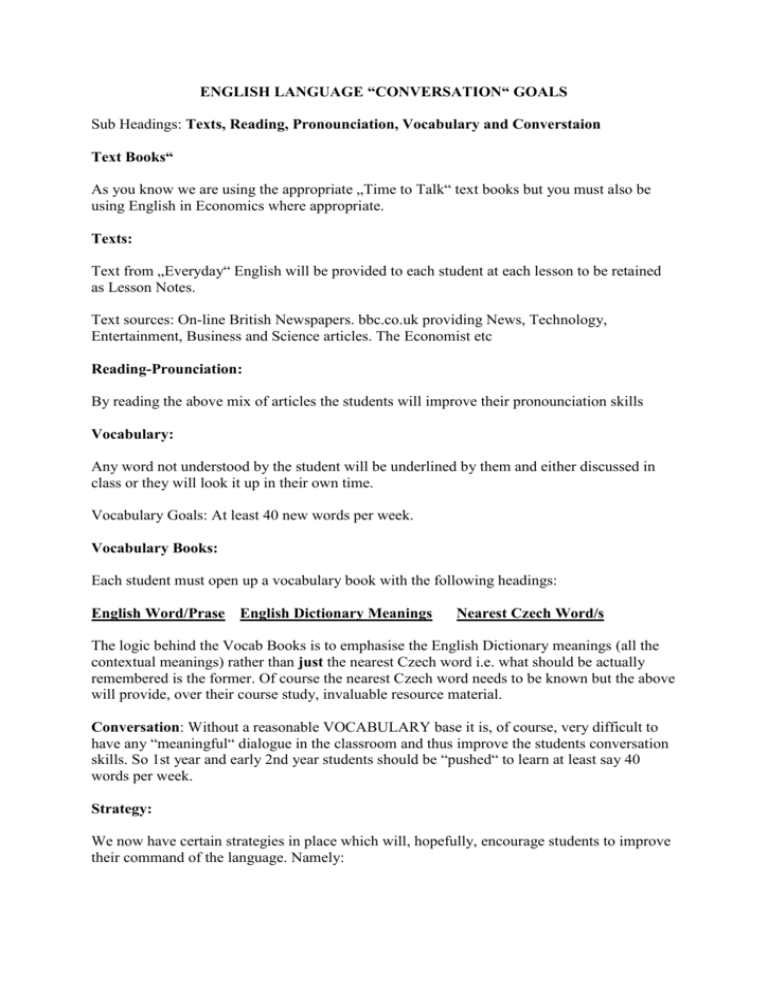
ENGLISH LANGUAGE “CONVERSATION“ GOALS Sub Headings: Texts, Reading, Pronounciation, Vocabulary and Converstaion Text Books“ As you know we are using the appropriate „Time to Talk“ text books but you must also be using English in Economics where appropriate. Texts: Text from „Everyday“ English will be provided to each student at each lesson to be retained as Lesson Notes. Text sources: On-line British Newspapers. bbc.co.uk providing News, Technology, Entertainment, Business and Science articles. The Economist etc Reading-Prounciation: By reading the above mix of articles the students will improve their pronounciation skills Vocabulary: Any word not understood by the student will be underlined by them and either discussed in class or they will look it up in their own time. Vocabulary Goals: At least 40 new words per week. Vocabulary Books: Each student must open up a vocabulary book with the following headings: English Word/Prase English Dictionary Meanings Nearest Czech Word/s The logic behind the Vocab Books is to emphasise the English Dictionary meanings (all the contextual meanings) rather than just the nearest Czech word i.e. what should be actually remembered is the former. Of course the nearest Czech word needs to be known but the above will provide, over their course study, invaluable resource material. Conversation: Without a reasonable VOCABULARY base it is, of course, very difficult to have any “meaningful“ dialogue in the classroom and thus improve the students conversation skills. So 1st year and early 2nd year students should be “pushed“ to learn at least say 40 words per week. Strategy: We now have certain strategies in place which will, hopefully, encourage students to improve their command of the language. Namely: Record Keeping: There is now a revised Attendance and Results template for your use together with a revise on-line Zapis. For students there will be 3 tests during the Semister. While tests are in progress students Vocabulary Books will be checked and points awarded. Students will be given 3 weeks notice of any test and be asked to bring their vocab books. If a student is not there for the test, for what ever reason their marks will be zero. If attendence or absence at tests etc becomes a factor in their final result then their Zapochet will not be signed and they will then need to explain their position. Of course regarding weekend students we need to use our commonsense i.e. the 3 tests can be dealt with by issuing homework or electronic testing etc The important thing is that at the end of the semester they have had the oportunity to perform, from a results point of view, in line with day students. Also note that the attendance results calculation is separate from the other result calculations. A student will fail , as indicated, if thein attendance is below 80 per cent The vocab books should be signed and dated by the teacher at this time so that we can monitor how much work they are doing during the break between tests. Marks are awarded for all categories i.e. Attendence, Class Activity, Homework, Vocabulary Books and Tests. As the semister progresses these marks, which are automatically collated, give a clear indication of where the student is at, at any given moment.. Any problem areas are, thus, highlighted. The Main Drive, is of course, 1st and 2nd year students. If the above strategy is fully implementated then our 3rd year students results should be reflect serious improvement on past results for this final year group. Please make sure the classification sheets are completed in good time for Zapocet and Zkouska
